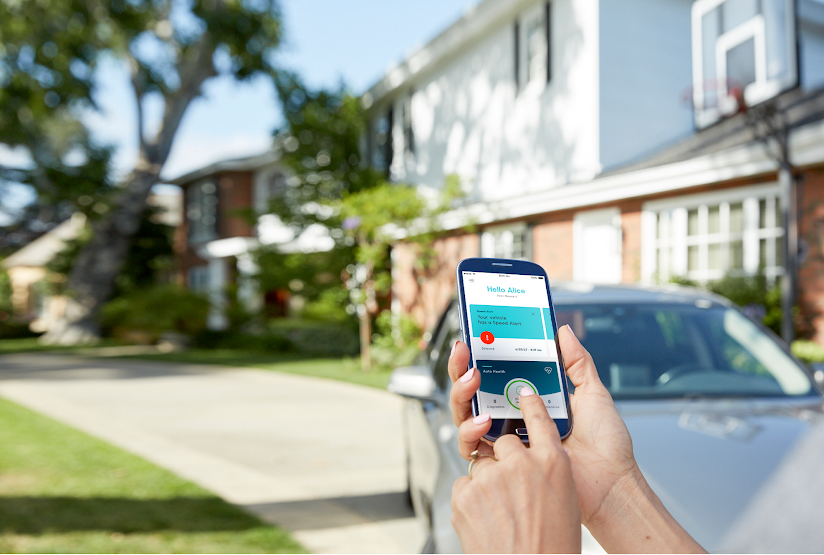By Geoff Arnold, chief technology officer, Verizon Smart Communities
It sounds like the city of dreams: Connected vehicles sending data about traffic and road conditions, allowing city managers to adjust lights and signs to improve flow, reroute cars to less congested roads or reduce traffic in sections of the city to improve air quality. But these dreams are quickly becoming a reality.
These technological advances depend on partnership and infrastructure investment. Integrating connected vehicles into the city means engaging government, citizens and technology partners – especially vehicle manufacturers, operators and communications providers. This partnership depends on trust and sharing, breaking down barriers between stakeholders and focusing on the benefits rather than the technologies. Innovative thinking will be needed for citizen engagement as well as business models.
Connected vehicles can provide a wealth of information. For example, accelerometers can measure both speed and bumps, allowing cities to predict potholes and monitor traffic flow. To maximize the potential of these solutions, cities can combine information from vehicles with data from other sources, such as pavement detectors and video analytics from smart intersections.
Basic connected vehicle technologies emerged more than 20 years ago, but the absence of widespread communications infrastructure and lack of software systems limited the value they could provide for cities and transportation departments. The last decade has brought myriad innovations and improvements in data speeds and the hardware – both embedded and aftermarket – required to connect vehicles to the internet. One of the most important innovations is the advanced software (Verizon Connect is one of the world’s largest providers) used to harness and analyze vehicle data to provide valuable and actionable insights to cities, businesses and consumers.
At this year’s International Consumer Electronics Show, Ford announced a partnership to build a new open platform called the Transportation Mobility Cloud (TMC). This will enable cities to build communications infrastructure supporting the sharing of data in real time. TMC is capable of connecting smart vehicles, bike share programs, traffic lights, connected parking spaces and other transportation services via a common platform that can be used across city agencies.
“Using connected solutions to make city streets safer and more efficient is an easy way for cities to start integrating technology,” said Lani Ingram, vice president at Verizon.
New vehicles and software applications are making it easier for cities to gather, store and analyze data, creating innovative ways to solve common problems.
One challenge to exploiting the benefits of connected vehicles is the need to break down silos between different government agencies and their technology partners. Agencies and their partners tend to view data and related infrastructure as private assets. Cities will need to establish policies for how data will be shared across departments from the beginning, if and how it will be monetized and who is responsible for privacy and data security.
Business models
As technology continues to rapidly change, governments and other businesses need to work together to deliver the full value of connected vehicles for citizens and customers.
“Cities need to come up with models that move from small pilots to scaled implementation,” Ingram said.
One good way to do this is via public-private partnerships where cities and their partners can work together for longer periods of time to implement solutions. By having a master agreement in place, cities and partners are aligned to solve problems and create solutions that meet consumer demands.
At Verizon that means taking a holistic approach of leveraging different parts of the company to maximize relationships and deliver integrated solutions that set cities up for success in the future. By having technology partners involved in conversations from the beginning, cities can make sure they have the right infrastructure in place to implement solutions, helping turn the dream of connected cities into a reality.
Geoff Arnold is the chief technology officer for the Verizon Smart Communities and Venues organization. He joined Verizon in October 2016 as part of the acquisition of Sensity Systems, where he was responsible for setting technical direction. Over the past 10 years Geoff has been a cloud computing architect for several large companies, including Cisco, Huawei, Yahoo, and Amazon. He has worked on both public and private clouds, focusing on scale and federation. Geoff was an Entrepreneur-in-Residence at US Venture Partners and has advised several startup companies.
At Verizon, our goal is to improve the quality of life for people living in cities around the world and increase the ways and efficiency in which cities operate. It’s not just about smart technology, connectivity or applications; it starts with a focus on the people and their basic wants and needs. We partner with each city to design infrastructure, systems and processes that elevate the way they provide services in new and cost-effective ways.
